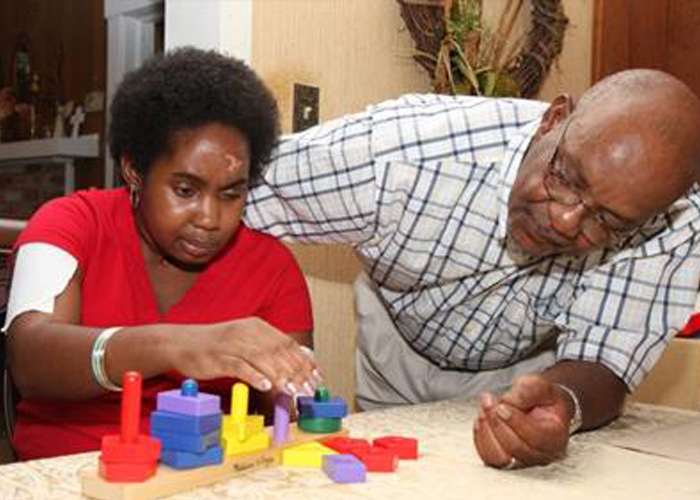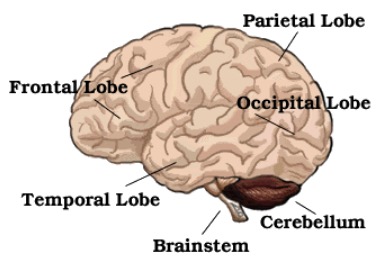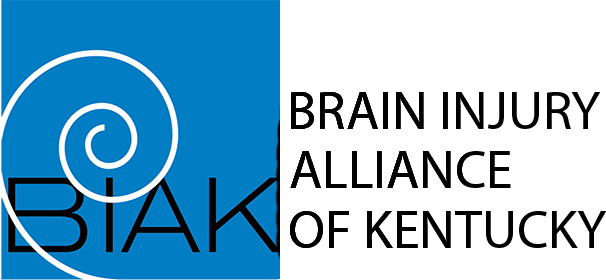Understanding TBI: Part 2 – Brain injury impact on individuals functioning

A traumatic brain injury interferes with the way the brain normally works. When nerve cells in the brain are damaged, they can no longer send information to each other in the normal way. This causes changes in the person’s behavior and abilities. The injury may cause different problems, depending upon which parts of the brain were damaged most.
There are three general types of problems that can happen after TBI: physical, cognitive and emotional/ behavioral problems. It is impossible to tell early on which specific problems a person will have after a TBI. Problems typically improve as the person recovers, but this may take weeks or months. With some severe injuries changes can take many years.
Structure and function of the brain
The brain is the control center for all human activity, including vital processes (breathing and moving) as well as thinking, judgment, and emotional reactions. Understanding how different parts of the brain work helps us understand how injury affects a person’s abilities and behaviors.
Left vs. Right Brain
- The brain is divided into two halves (hemispheres). The left half controls movement and sensation in the right side of the body, and the right half controls movement and sensation in the left side. Thus, damage to the right side of the brain may cause movement problems or weakness on the body’s left side.
- For most people, the left half of the brain is responsible for verbal and logical functions including language (listening, reading, speaking, and writing), thought and memory involving words.
- The right half is responsible for nonverbal and intuitive functions such as putting bits of information together to make up an entire picture, recognizing oral and visual patterns and designs (music and art), and expressing and understanding emotions.
Brain Areas & Associated Functions
The brain is made up of six parts that can be injured in a head injury. The effect of a brain injury is partially determined by the location of the injury. Sometimes only a single area is affected, but in most cases of TBI multiple areas have been injured. When all areas of the brain are affected, the injury can be very severe.

| Six parts | Functions |
|---|---|
| Brain Stem |
|
| Cerebellum |
|
| Frontal Lobe |
|
| Parietal Lobe |
|
| Occipital Lobe |
|
| Temporal Lobe |
|
Physical Problems
Most people with TBI are able to walk and use their hands within 6-12 months after injury. In most cases, the physical difficulties do not prevent a return to independent living, including work and driving.
In the long term the TBI may reduce coordination or produce weakness and problems with balance. For example, a person with TBI may have difficulty playing sports as well as they did before the injury. They also may not be able to maintain activity for very long due to fatigue.
Cognitive (Thinking) Problems
- Individuals with a moderate-to-severe brain injury often have problems in basic cognitive (thinking) skills such as paying attention, concentrating, and remembering new information and events.
- They may think slowly, speak slowly and solve problems slowly.
- They may become confused easily when normal routines are changed or when things become too noisy or hectic around them.
- They may stick to a task too long, being unable to switch to different task when having difficulties.
- On the other hand, they may jump at the first solution they see without thinking it through.
- They may have speech and language problems, such as trouble finding the right word or understanding others.
- After brain injury, a person may have trouble with all the complex cognitive activities necessary to be independent and competent in our complex world. The brain processes large amounts of complex information all the time that allows us to function independently in our daily lives. This activity is called executive function because it means being the executive or being in charge of one’s own life.
Emotional/Behavioral Problems
Behavioral and emotional difficulties are common and can be the result of several causes:
- First, the changes can come directly from damage to brain tissue. This is especially true for injuries to the frontal lobe, which controls emotion and behavior.
- Second, cognitive problems may lead to emotional changes or make them worse. For example, a person who cannot pay attention well enough to follow a conversation may become very frustrated and upset in those situations.
- Third, it is understandable for people with TBI to have strong emotional reactions to the major life changes that are caused by the injury. For example, loss of job and income, changes in family roles, and needing supervision for the first time in one’s adult life can cause frustration and depression.
Brain injury can bring on disturbing new behaviors or change a person’s personality. This is very distressing to both the person with the TBI and the family. These behaviors may include:
- Restlessness
- Acting more dependent on others
- Emotional or mood swings
- Lack of motivation
- Irritability
- Aggression
- Lethargy
- Acting inappropriately in different situations
- Lack of self-awareness. Injured individuals may be unaware that they have changed or have problems. This can be due to the brain damage itself or to a denial of what’s really going on in order to avoid fully facing the seriousness of their condition.
Fortunately, with rehabilitation training, therapy and other supports, the person can learn to manage these emotional and behavioral problems.
More in the Understanding TBI Series
- Part 1 – What happens to the brain during injury and the early stages of recovery from TBI?
- Part 3 – The Recovery Process
- Part 4 – The Impact of a Recent TBI on Family Members and What They Can Do to Help with Recovery
Authorship
Understanding TBI was developed by Thomas Novack, PhD and Tamara Bushnik, PhD in collaboration with the Model System Knowledge Translation Center. Portions of this document were adapted from materials developed by the University of Alabama TBIMS, Baylor Institute for Rehabilitation, New York TBIMS, Mayo Clinic TBIMS, Moss TBIMS, and from Picking up the pieces after TBI: A guide for Family Members, by Angelle M. Sander, PhD, Baylor College of Medicine (2002).
Source: The content is based on research and/or professional consesnsus. This content has been reviewed and approved by experts from the Traumatic Brain Injury Model Systems (TBIMS), funded by the National Institute of Diability, Independent Living, and Rehabilitation Research, as well as experts from the Polytrauma Rehabilitation Centerse (PRC), funded by the U.S. Department of Veterans Affairs.
Disclaimer: This information is not meant to replace the advice from a medical professional. You should consult your health care provider regarding specific medical concerns or treatment.This publication was originally produced by the TBI Model Systems in collaboration with the University of Washington Model Systems Knowledge Translation Center with funding from the National Institute on Disability and Rehabilitation Research in the U.S. Department of Education (grant number H133A060070). It was updated by the TBI Model Systems in collaboration with the Model Systems Knowledge Translation Center at the American Institutes for Research with fuding from the National Institute on Disability, Independent Living, and Rehabilitation Research (NIDILRR; grant number 90DP0082). NIDILRR is a Center within the Administration for Community Living (ACL), Department of Health and Human Services (HHS). The contents of this factsheet do not necessarily represent the policy of NIDILRR, ACL, HHS, and you should not assume endorsement by the Federal Government.
Copyright © 2018 Model Systems Knowledge Translation Center (MSKTC). You can freely reproduce and distribute this content. Include proper attribution. But you must get permission before using this content in fee-based products.
ABOUT US
CONTACT US
7321 New LaGrange Road
Suite 100
Louisville, KY 40222 USA
Phone: 502.493.0609
Email: info@biak.us
OFFICE HOURS
ABOUT US
CONTACT US
7321 New LaGrange Road
Suite 100
Louisville, KY 40222 USA
Phone: 502.493.0609
Email: info@biak.us
OFFICE HOURS


